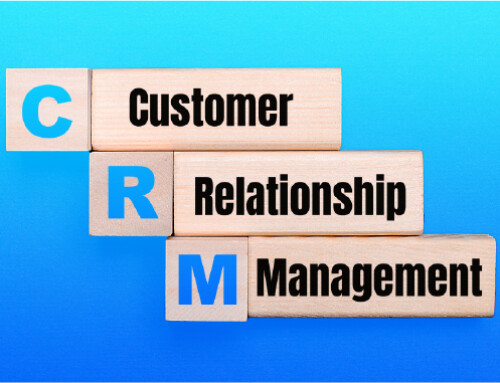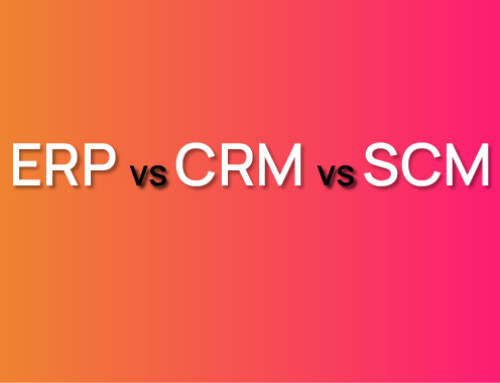Contents
Starting a business, especially a small business like an electrical contractor, can seem a huge challenge. But it doesn’t have to be! Creating your own contractor business can be much easier if you follow these short steps If you’re ready to take the plunge into entrepreneurship, this article will help you lay out your plan and get started on the right foot.
Start Your Electrical Contractor Business In 16 Steps
1. Obtain An Electrical Contractor’s License
Obtaining your contractor’s license is an important step that you must take before you start a small electrical contractor business. When you obtain your license, you will be able to perform electrical work within the state in which it was issued. In order to get a license, you must pass an exam and pay any applicable fees. In addition, if someone else is working under your direction, they may need their own electrical contractor’s license as well.
If you are not sure whether you need a license, then it is best to check with your state’s licensing board before applying for one. In some states, such as California and Ohio, an electrical contractor’s license is required in order to perform any type of electrical work in the state. However, other states only require licenses for specific types of work, such as commercial or residential wiring.
You’ll need to obtain an electrical contractor’s license from your state. To do so, you must pass the North American Electrical Licensing Exam (NAEL), which is administered by the National Council of Examiners for Engineering and Surveying (NCEES). Then you can apply for your license with your state’s licensing board. You’ll be required to pay a fee and provide proof that you are bonded.
2. Identify The Type Of Work You’ll Do
- Identify the type of work you’ll do.
- Consider what your strengths are.
- Consider what your weaknesses are.
- Identify the type of work that you enjoy doing, as well as the types of projects that can make money for your business.
Next, you should identify the type of work that you’ll do. This is important because it will help you determine what kind of equipment and tools you need to buy as well as how much money to invest in equipment, tools, and marketing materials.
A general contractor can perform all kinds of electrical work. However, if they specialize in one area (i.e., residential or commercial), their reputation will be known for that particular area, and their customers will expect them to provide this type of work only (unlike an electrician who specializes in residential or commercial).
When determining which direction you want your business to go with regard to specialization, consider what your strengths are as well as where there’s room for improvement based on past experiences. Also, consider whether certain types of projects interest or excite you more than others because there may be other areas of expertise available within those specializations that would allow for greater income potential over time (but might require additional training).
3. Establish Your Business Entity And Get Its Tax Id Number
- Open a business bank account.
- Get a federal employer identification number (EIN).
- Get a state tax ID number, if required.
- Register with the appropriate local and county agencies. In most areas of the U.S., this includes:
- Local zoning department or planning authority if you’re installing power lines on private property; and/or
- Electrical inspection department if building new electrical equipment in an older home.
4. Decide Whether You Want To Specialize In Residential Or Commercial Work.
Once you’ve decided to set up your own electrical business, you need to decide whether you want to specialize in residential or commercial work.
Residential work is fairly stable and less complicated than commercial work. It’s also more likely to be profitable since there are fewer competitors in this field and homeowners tend not to be as picky about who they hire for their projects.
Commercial projects tend to be more interesting and challenging—which makes them more fun—but they take longer than residential jobs do and are, therefore, less predictable in terms of profit margins.
5. Define Your Target Market
You need to know who your target market is. Your target market consists of the people or businesses who will buy from you and/or refer you.
Your first task is to define this group and then determine how to reach them through advertising, networking, and other marketing strategies.
The second step in defining your target market is figuring out what makes this group unique. What are the problem areas that keep them awake at night? What do they wish was different about their work environment? How would they like things done differently in their lives or careers? When answering these questions, keep in mind that it’s not just about what they want—it’s about what YOU can offer that others can’t!
In addition to identifying a group of potential customers based on basic demographic information (age groups), location (geographic area) or characteristics of interest (industry type), consider including factors such as lifestyle preferences or personality traits that might make someone more likely than others to purchase products from an electrical contractor business – such as extroverts vs introverts; high achievers vs average achievers; risk takers vs risk avoiders; etc.
6. Purchase Insurance And Bonding.
As a small electrical contractor, you need to carry liability insurance. When you’re starting out, it’s also important to get bonding. This is a form of insurance that protects you from lawsuits and allows your customers to pay for services in installments (such as when building a house). Bonding protects both them and the employees who work for your company. The amount of bonding required depends on your business type and size—consult with an attorney or accountant before choosing this coverage so that they can give you advice based on their expertise.
7. Obtain Operating Capital.
Now that you have the necessary credentials and experience to start an electrical contracting business, you need to obtain operating capital. Operating capital is money you use for business expenses like paying your employees and purchasing supplies.
Given the nature of small electrical contracting businesses and their low-cost operations, it’s not uncommon for operators to pay themselves very little in order to maximize profitability. In fact, some contractors don’t take any money out of their businesses until they reach a certain level of success—or even when they sell their companies outright.
The amount of operating capital you need will vary based on whether or not your business uses subcontractors or employees; how many employees/subcontractors; what type(s) of work it performs; where its offices are located (if any); etc., but generally speaking:
- The lower end would be around $100k – $300k depending on how many people there are working at one time during busy seasons (i.e., summer).
- The higher end would be around $400k – $1 million for larger companies that employ multiple crews with heavy equipment needs throughout all four seasons each year without fail.”
8. Determine A Business Structure.
After you’ve identified the type of electrical work you want to do and determined the future size of your business, it’s time to choose a business structure.
A sole proprietorship is the easiest structure to establish and maintain because it doesn’t require any special filings with government agencies. However, as the only owner of your company, you’re responsible for all liabilities that come along with running a business. You’ll also be required to pay taxes on your personal income (i.e., “self-employment tax”) at higher rates than corporations or S corporations would be taxed on their profits.
If you’re considering taking on partners in your business venture, consider structuring it as a partnership instead of an LLC so that each partner has limited liability protection from one another’s debts and liabilities incurred by the partnership itself (but not from each other). In addition to these protections provided under state law against lawsuits against individual partners’ personal assets, legal agreements known as “partnership agreements” can provide further assurance about how decisions are made within such businesses—and what happens if things go wrong between partners or members who form an LLC together later down the road when disagreements arise among themselves–so long as everyone sits down beforehand during planning stages when starting out new ventures together!
9. Obtain Tax Identification Numbers And Permits, If Required By Your State Or Local Government.
To obtain a tax identification number, you’ll need to register your business with the state in which you plan to operate. It’s also recommended that you check with your city or town for any additional requirements that may be necessary for operating a small electrical contractor business.
If permits are required for your type of business, get them before beginning operations. Permits can take time to acquire and are often difficult to obtain at the last minute. Check with your local government to find out if permits are required for certain kinds of businesses and how long it takes to apply for them.
10. Develop A Business Plan And Marketing Strategy To Promote Your Company And Its Services.
A business plan is a written statement of your business goals and objectives. It should include a description of the services you will offer, an explanation of what makes you different from other contractors in the area, analysis of the local market and competition, and information about yourself as an owner/operator (such as financial history). If you don’t have formal training in writing business plans, it would be wise to seek help from someone who does—for example, through CPP’s Small Business Essentials Series workshop series or other resources available through SBA’s SCORE (Service Corps of Retired Executives) program.
A marketing strategy is another key component to developing your business plan. The purpose of a marketing strategy is to promote your business by establishing different types of advertising campaigns designed specifically for one target audience or another within a certain geographic region; by pursuing public relations opportunities that highlight what makes your company unique; or even by selling directly through cold calls or door-to-door sales tactics like door hangers handed out at events hosted by professional organizations with members who may have electrical needs in their homes or businesses (you can learn more about this type of sales promotion here).
11. Create A Business Plan
A business plan is a written document that describes your business, how you will operate and grow it, and your financial projections. It’s an important tool for any entrepreneur to have because it helps you set clear goals, identify the risks of starting a company and make smart decisions.
A well-written business plan can help convince lenders or investors that your organization is prepared to succeed. It also gives you an opportunity to think through all aspects of starting a new enterprise before taking any steps toward opening doors.
Here are some other benefits of developing a solid plan:
- Helps you focus on building a sustainable business by staying focused on what matters most (your customers) while eliminating distractions that prevent growth;
- Helps establish credibility in the eyes of others who may be interested in doing business with you;
- Creates accountability for yourself as an entrepreneur or team leader;
12. Create A Website For Your Business
Create a business website and make sure it is easy to find with an effective search engine optimization (SEO) strategy. Set up social media accounts on Facebook, Twitter, Instagram and others that make sense for your potential customers.
To get started, you’ll need a business website. You can create your own website using a site-building tool like Wix or WordPress, but you may want to consider hiring someone specializing in web design to build your site for you. The basics of web design are pretty easy to learn and the benefits of having an attractive and functional website far outweigh the cost of paying someone else to do it for you. Once the site is built, make sure it’s easy for people to find with effective search engine optimization (SEO) strategy by optimizing what keywords they use on their homepage and throughout their website as well as making it easy for people looking at your page when they’re not logged into Google (for example: “Electrical Contractor near me”). In addition, set up social media accounts on Facebook, Twitter and Instagram among others that make sense for potential customers within your area or industry (e.g., contractors).
13. Do Your Homework
Learn everything you can before going into this business. Even if you have years of experience as an electrician working for others, there are still many things you must learn to start a business.
As you start to learn about the industry, it’s important that you understand how much work goes into running a small electrical contractor business. You’ll need to learn about marketing and sales, finance and accounting, business law, business planning and hiring employees.
Before starting any new project or job with your small electrical contractor business make sure that you have all of the necessary certifications required for working in that area of specialty.
Find out what licenses, permits and insurance you will need to operate your small electrical contractor business.
- Find out what licenses, permits and insurance you will need to operate your small electrical contractor business.
- Check with your local government or chamber of commerce for information on the requirements in your area. You may need a business license and a tax ID number, as well as workers’ compensation insurance.
- If you have been an electrician for some time and are already licensed, then you can apply for your professional license in most states.
14. Come Up With A Marketing Strategy
Develop a marketing plan for your electrical contractor business at the same time as you are developing your other plans so you can launch both at the same time.
To be successful, you need a plan for marketing your electrical contractor business. That plan will help you develop a strategy for reaching potential customers. And that’s what marketing is all about: identifying who your target audience is and how you will reach them with the right message at the right time.
Developing an effective marketing strategy can be challenging, but it’s also very rewarding! You’ll gain insights into how people think and act when they’re shopping for services like yours, so if you have some expertise in this area (for example, if you’ve worked in sales before), then use it! However, if not know-how isn’t one of your strengths—or even if it is—it’s still important to understand as much as possible about how people think when making decisions related to their personal finances or home improvement projects.”
15. Put Effort In Your Website
Write content for your website and social media accounts that will resonate with your target customers so they will see you as the authority in your market niche. Be authentic and real instead of sales or promotional.
The best way to make your small electrical contractor business stand out from the competition is by creating content that resonates with your target customers. Here are some tips for doing so:
- Write about things that are relevant to your target customers. When you write about topics that are of interest to them, it helps them understand why they should do business with you instead of one of your competitors.
- Write about things that are interesting to your target customers. It’s important not just because it makes you different; it also makes people want to read more of what you have to say and share your content with others in their network, which could increase traffic on both ends—from new people who come across it via social media or search engines, as well as existing customers who might want more information on a topic already discussed in previous posts!
An Electrical Contractor Business Can Be One of the Most Successful Types of Business If You Do It Right
To begin with, you will need to find your niche and market yourself appropriately. You’re not going to get very far if you try to compete with large national companies by simply offering a lower price. Instead, focus on providing value for your customers that they would otherwise not be able to get from traditional electrical contractors. Finding this niche is an important part of starting any business but especially when it comes to an electrical contractor because there are so many different aspects at play:
- A great product or service
- An authentic brand identity and messaging that resonates with customers
- Marketing plan (website, social media accounts)
Now That Your License Is In Hand, It’s Time To Start Up Your Company!
First things first: You’ll need a business plan and marketing strategy. A business plan is a written document that outlines your business goals and objectives. A marketing strategy is a plan for promoting your business. The business plan and marketing strategy will help you to identify your target market (who will buy from you?), so make sure they reflect your goals.
Once you have those documents completed, it’s time to set up shop. Find an office space near where most of the jobs are being done so that people know where they can find you when they need electrical services.
Conclusion
Congratulations, you’ve made it through the first steps of starting an electrical contractor business! If you’ve gotten this far, then congratulations on your new career as a small business owner. You’re going to need all the help that you can get, so don’t hesitate to reach out for support from friends and family members. And don’t forget about us—we’re here for any questions or concerns that might come up along the way. Happy planning!
Disclaimer: The content provided on this blog is for informational purposes only and does not constitute legal, financial, or professional advice.







